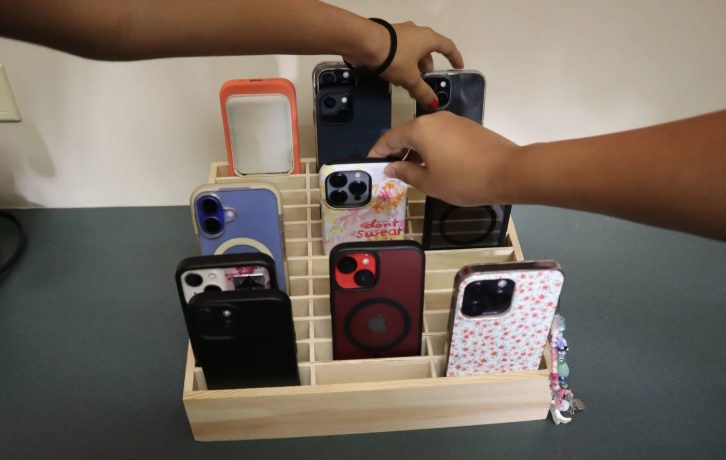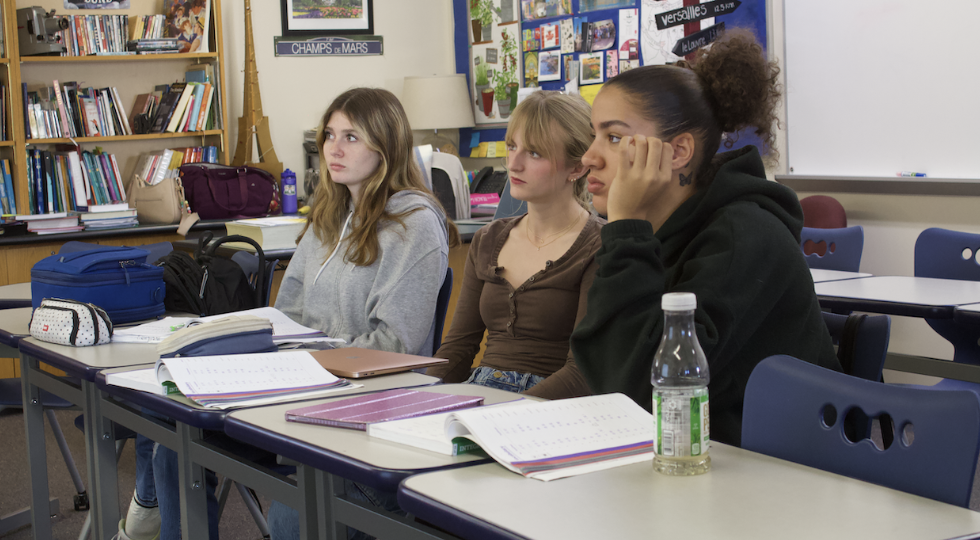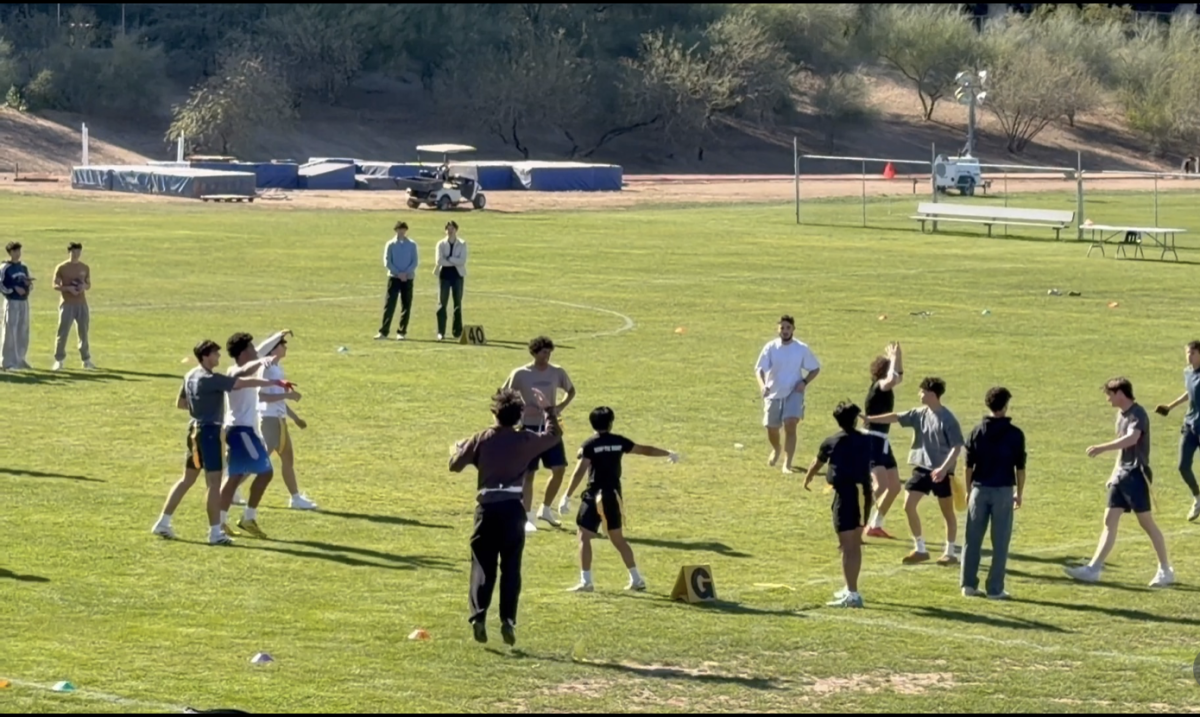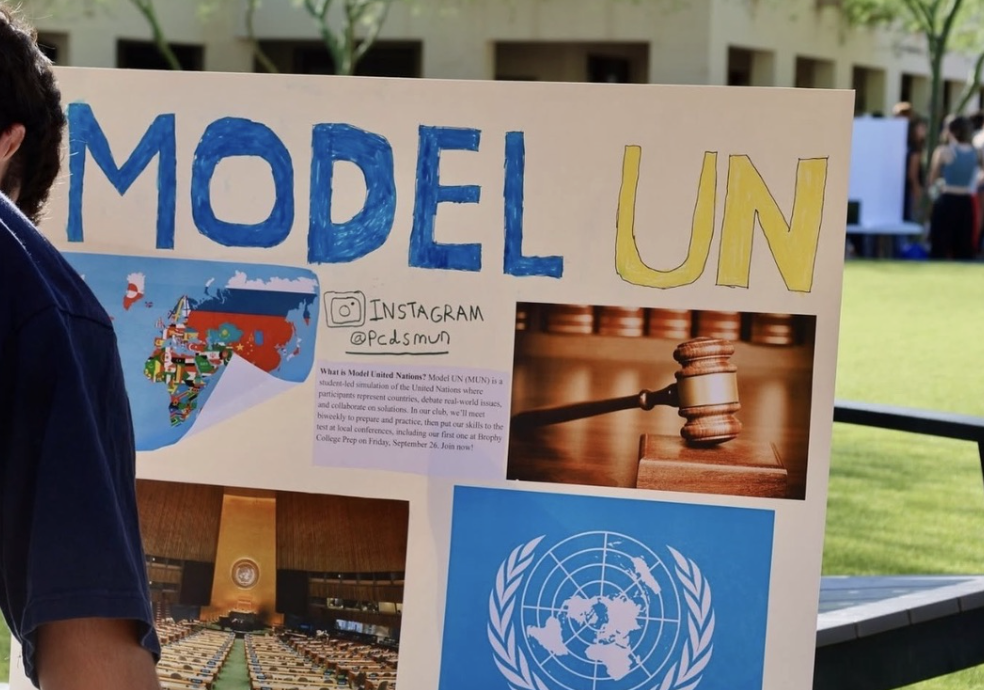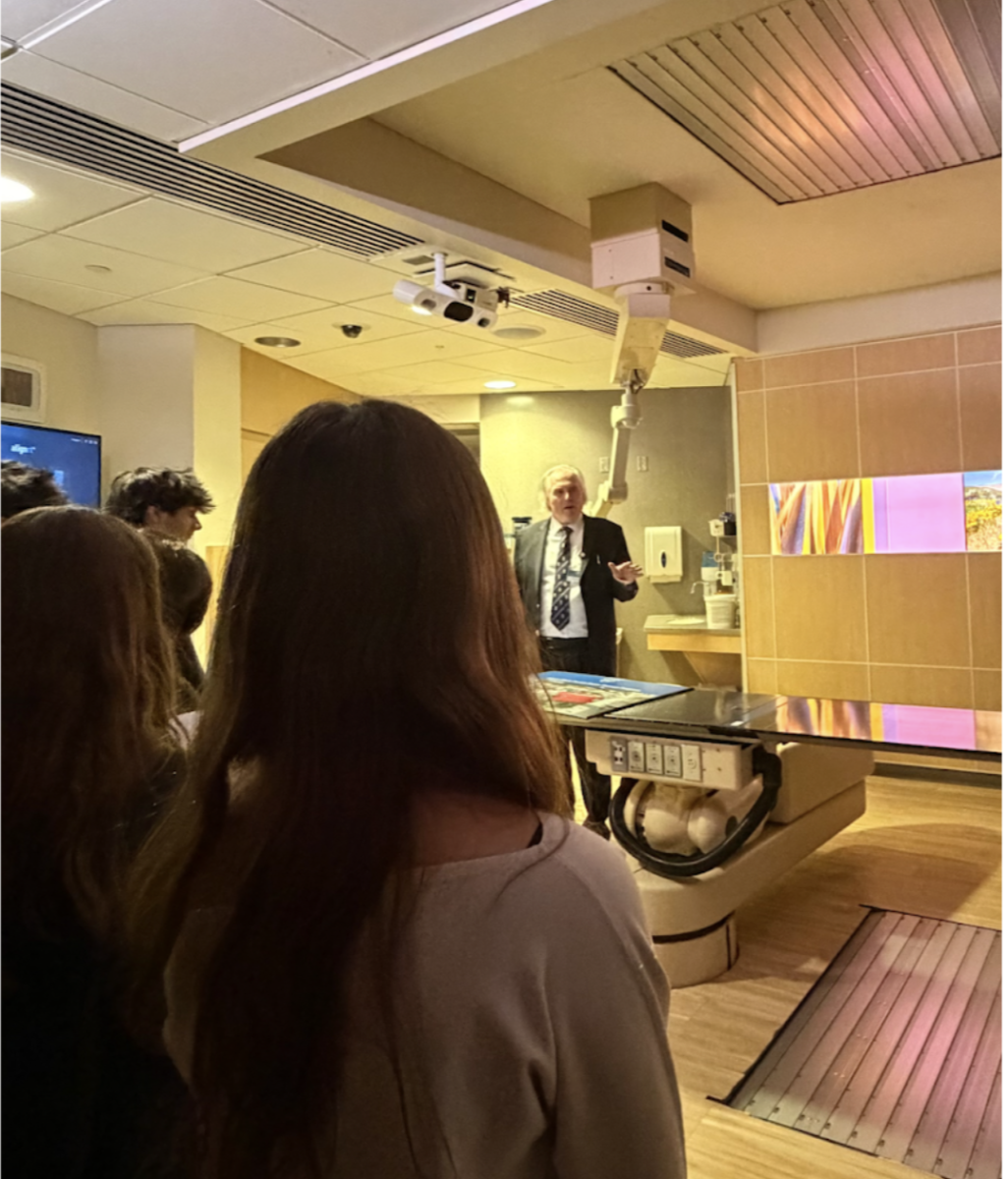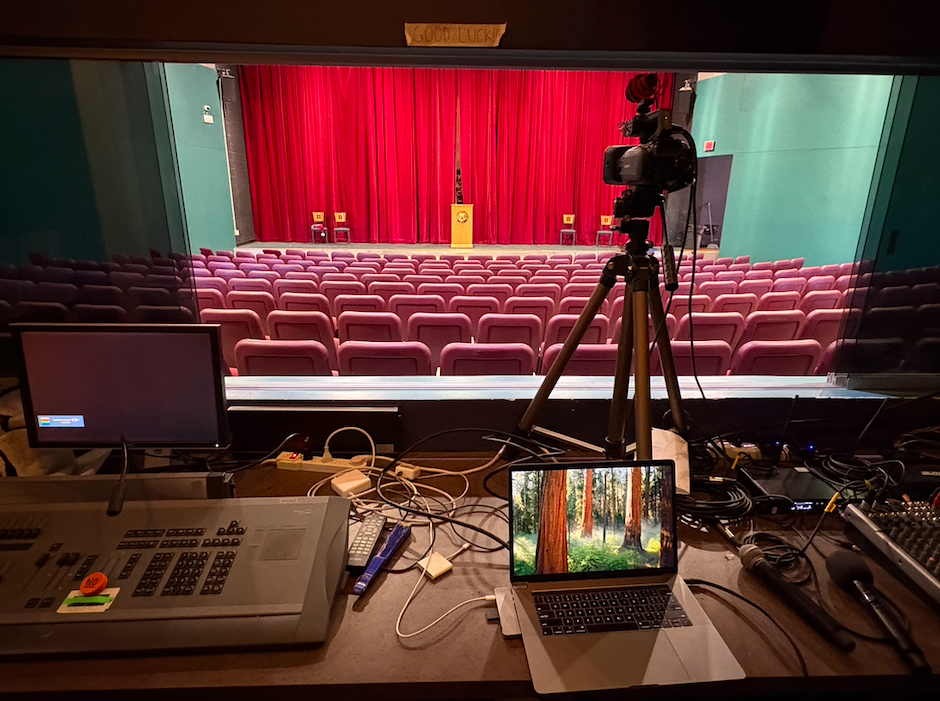As PCDS Upper School students entered the 2025-26 school year, they were met with not only new classes and teachers, but also a surprise change to campus life: a new phone policy. On August 6, Dr. Binger, Head of the Upper School, emailed students and parents, informing them that “after careful consideration this summer, the Upper School administration has created a new Upper School Phone Policy that seeks to balance student independence with an environment conducive to learning.”
The basis of the phone policy is a simple yet firm requirement that all phones must be silenced and placed into the designated phone bins located in all Upper School classrooms for the entire duration of class. Teachers may allow students to use their phones, but only for academic purposes and with explicit permission. To help reinforce this change, the Upper School has adopted a catchy slogan: “If it’s in the room, it’s in the bin.”
In the spring of 2025, Dean of Faculty, Mr. Bistricky, led a committee of Upper School faculty tasked with assessing the current impacts of phone usage on the Upper School and creating a proposal for a phone policy that supported a positive learning environment.
Mr. Bistricky said that the phone policy committee was formed due to “several years’ worth of just noticing that teachers had different cell phone policies in their classrooms, which we were fine with…we wanted teachers to have that discretion, but we noticed that it didn’t lend itself to any kind of consistency or uniformity.”
In order to create this new policy, the committee studied what other schools were doing, background psychology, educational theory research, and brain research. In the spring of 2025, they released a survey to both faculty and staff in order to gather input that was ultimately used in making their policy recommendation. The survey received a lot of student responses; Mr. Bistricky reported that there were also some questionable answers. Some students were, in his words, “trying to game the system” by making claims that they never use cell phones and that cell phone use is not an issue at all, which he found didn’t quite fit his observations around campus. However, many students were honest, admitting that phones were a distraction. With that, the committee could come to its conclusion: cell phone usage had become an extreme problem. The Upper School Phone Policy was born.
While students are still allowed to have phones before school, during breaks, at lunch, and after school, Fridays came with a new twist: they’re phone-free, or, as they’re lovingly described by faculty and students, “Face-to-Face Fridays.”
On Face-to-Face Fridays, students are asked to be face-to-face with one another without using their phones at all—not even during breaks or lunch. Instead, phones must be stored in backpacks, lockers, or left at home for the entire school day.
Mr. Bistricky said his goal for Face-to-Face Fridays was to encourage students to “reflect on if their phone usage might be interfering with developing relationships and friendships with their peers on campus,” and so far, he’s “thrilled that students are going along with it,” and he “hasn’t really noticed a lot of students using their cell phones.”
Students, however, have mixed feelings about this policy. Sophomore Jyothi Patel doesn’t think that Face-to-Face Fridays are that bad, but she wishes that it weren’t on a Friday. “I wish it were Phone Free Monday, or like Tuesday or Wednesday or Thursday,” she said.
Junior Lucy Gottfurcht thinks the phone policy as a whole is annoying, and says, “It’s not that different from freshman year when we would have to have our phones in the bins all the time – it’s just as annoying as it was and always has been.” She also thinks that the phone isn’t making that much of a change in campus life; in fact, the main difference she’s found is that “you just don’t see phones.” She says, “People still willingly talk to each other even if they have their phones on them or not…if they want to talk to each other, they will, and if they don’t want to talk to each other, then they’ll just find a way not to.”
On the other hand, teachers have responded differently to the new policy. Before the phone policy, Upper School Spanish teacher Ms. Riehle used to give students the freedom to decide whether or not they could have their phones nearby. She found that while some managed this responsibility well, others were constantly tempted to check their devices. She says that, although the phone policy may not be everyone’s favorite, so far she has been “blown away by the difference” in her classes, noting that student engagement has noticeably increased.
Upper School history teacher Dr. Khakpour shared a similar perspective. Before the ban, he expected phones to stay put unless needed for an activity, but admitted that “the phone would slip out” often enough that he had to remind students, or even confiscate a device or two. Under the phone policy, he finds he has fewer “awkward conversations” about phone use. He’s also intrigued by Face-to-Face Fridays, which he sees not as punishment, but as “a reminder that we’re all a little too glued to our screens, so let’s use that day to have more interactions.” While he hasn’t noticed a dramatic change in classroom dynamics, as he already had a similar policy in his classroom, he appreciates the smoother flow of lessons without phone-related distractions.
As the school year continues, both students and teachers will be watching closely to see whether the new policy leads to lasting changes. For now, the bins and Face-to-Face Fridays have become an integral part of daily life at PCDS, reminders of a daily effort to disconnect to reconnect.


